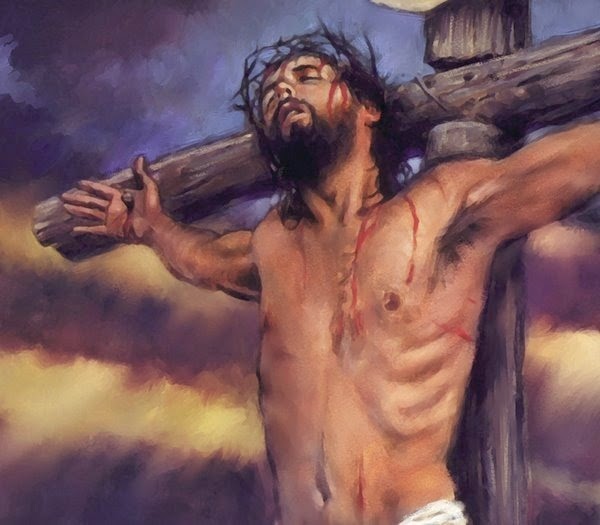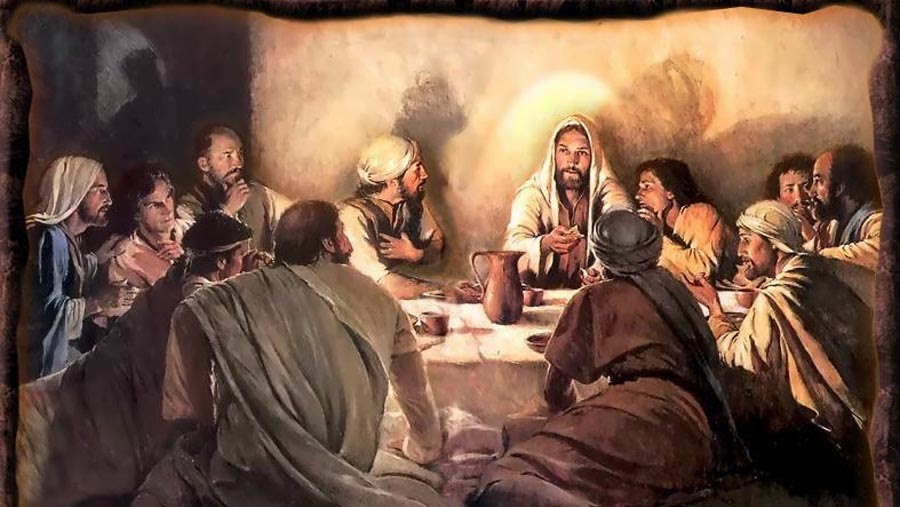We have just heard the
Gospel of St. John (Jn. 13: 1-15) describe how Jesus washed
the feet of his disciples. The priest with
whom I am in residence is someone who likes trivia. And so I related to him earlier today a bit
of trivia regarding foot washing that
he was unaware of previously. I told him
that according to a commentary that I read in preparation for tonight’s homily,
no Jewish
slave could be compelled to wash someone’s feet:
At the Last Supper, Jesus would have been
the “host” and the apostles the “guests.” Washing the feet of weary travelers
would have been a job delegated to a gentile slave by the host. Not even a Jewish slave would be expected to
wash feet. The host of a meal would certainly not lower himself to performing
this vile task himself.
Yet we see in the Gospel how Jesus humbles himself
to wash the feet of His disciples. The
God of Heaven and Earth who is responsible for all of us--His creatures—being
here in the first place, not only became one of us (a human being) in Jesus, but He stooped to do something
that not even a Jewish slave would do.
This washing of feet is an example of how Jesus poured Himself out for us—how He extended
Himself for the sake of others. It was a
profound act of humility. No wonder
Peter would object to such an action!
Many of us may face things in
life that we do not like to do, but we may humble ourselves for the sake of another. I can think of parents changing the diaper of
their child. Not exactly a pleasant
task, but it is one that parents do continuously for the sake of their
children. There may be a nurse in the
hospital who has to perform some unsavory
tasks to help a patient. The nurse may
have to face some responsibilities that no one would necessarily choose to do, unless
it were done out of duty or obligation. By performing these actions out of love and concern for the other, such
difficult tasks, like Jesus’ foot-washing,
can take on a profound spiritual meaning.
They can demonstrate an outpouring and humbling of self for the sake of
the other.
Back when I was a deacon, I was
asked to bring Holy Communion to a person dying of AIDS. Truth be told, I didn’t
want to go because I was afraid of this deadly disease. Eventually I realized that the right thing to
do was to go and show love and compassion to this person who was made in the image and likeness of God
and who deserved my love and respect. It
seems that love had the ability to conquer
fear in this instance.
Let’s fast forward to Good Friday. On the cross
Jesus again showed us great humility. He
poured Himself out for us once again. He
extended Himself for our sake. His
self-giving was total and complete. He
exemplified true love—a love that is never selfish. You don’t see Jesus hanging from the cross
saying: What am I getting out of
this? What’s in it for ME? No, in humility he faced a shameful death on
the cross out of love.
Today, Holy
Thursday, our altar becomes the Upper Room.
We hear Jesus speak those timeless words over the bread and wine: This is my Body. This is my Blood. Once again,
He pours Himself out for us. He gives
Himself totally and completely to us. He
extends Himself for us.
All three actions, the foot-washing, the gift of the Holy Eucharist
and Jesus’ death on the cross are intimately tied together and have their
source in one act of the will: Jesus’ Yes to His Father. “My Father, if it is possible, let this
cup pass from me; yet, not as I will, but as you will.” (Mt. 26:39) Jesus perfectly
fulfilled the will of His Father.
Finally, today’s Mass
commemorates the institution of the ministerial or ordained priesthood by
Jesus. Referring to the Holy Eucharist,
Jesus told His disciples to “do this in memory of me” (Lk. 22:19) and He gave them His divine authority
to do so. Priests act in the name of and with the authority of Jesus Himself. Priests administer the sacraments in persona Christi. This is not to say that priests are without
faults or sinless. Unfortunately, this
is not the case. Yet, if we realize that
Jesus, who is God, deliberately picked a disciple who betrayed Him, a disciple who denied Him three times and others who ran away from the shame of the cross, then we may begin to understand how God paradoxically and mysteriously “chose the foolish of the world to shame the wise, and God chose the weak of the world to shame the strong.” (1 Cor. 1:27) It
is because Jesus accomplishes his saving
actions through us and sometimes despite us, not because of us. It is Jesus who makes things happen, using
His chosen priests with all of their
flaws. It’s all about Jesus and not really about us. Please pray for your priests.
Now, as I prepare to wash the
feet of twelve parishioners, please remember the absolute humility and self-giving
that Jesus shows us by His actions.


